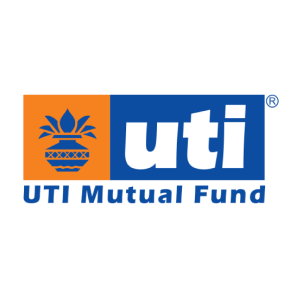Equity Savings Funds
Equity Saving Funds allocate a minimum of 30%-35% of their total assets to equity assets, with the remaining portion invested in debt income funds and arbitrages.
3 to 5 years
25 Funds
₹53,922 Cr Total AUM

Equity Saving Funds allocate a minimum of 30%-35% of their total assets to equity assets, with the remaining portion invested in debt income funds and arbitrages.
3 to 5 years
25 Funds
₹53,922 Cr Total AUM

Sort By
| Fund name | Fund size | Expense Ratio | 3Y Returns |
|---|---|---|---|
 HSBC Equity Savings Fund Direct Growth Equity Savings Moderately High risk | ₹786 Cr | 0.66% | 14.3% |
 Sundaram Equity Savings Fund Direct Growth Equity Savings Moderate Risk | ₹1,201 Cr | 0.6% | 12.8% |
 Kotak Equity Savings Fund Direct Growth Equity Savings Moderate Risk | ₹9,022 Cr | 0.67% | 12.5% |
 Invesco India Equity Savings Fund Direct Growth Equity Savings Moderately High risk | ₹422 Cr | 0.71% | 12.1% |
 Edelweiss Equity Savings Fund Direct Growth Equity Savings Moderate Risk | ₹1,028 Cr | 0.61% | 12.1% |
 Mirae Asset Equity Savings Fund Direct Growth Equity Savings Moderately High risk | ₹1,732 Cr | 0.36% | 11.9% |
 UTI Equity Savings Fund Direct Growth Equity Savings Moderately High risk | ₹794 Cr | 0.66% | 11.6% |
 SBI Equity Savings Fund Direct Growth Equity Savings Moderately High risk | ₹5,997 Cr | 0.98% | 11.6% |
 Mahindra Manulife Equity Savings Fund Direct Growth Equity Savings Moderately High risk | ₹550 Cr | 0.71% | 11.4% |
 Axis Equity Saver Fund Direct Growth Equity Savings Moderately High risk | ₹931 Cr | 1.09% | 11.1% |
Equity savings funds are open-ended hybrid mutual funds that invest primarily in equity (minimum 65%), debt securities (minimum 10%), and arbitrage opportunities. This mix offers potential for capital appreciation with less volatility than pure equity funds, plus better tax efficiency than typical debt funds.
Fund managers can actively balance investments based on market conditions, helping manage risk. The arbitrage component seeks to profit from market price fluctuations.
Investors seeking moderate risk, short-term investment alternatives, and tax advantages may find equity savings funds suitable.
As of April 2024, this fund category has average assets under management (AUM) of Rs 31,281.86 crore with 22 schemes, the oldest being 27 years old, according to the Association of Mutual Funds in India (AMFI).
| Scheme Name | AUM (Cr.) |
| ICICI Prudential Equity Savings Fund | 10,104.96 |
| Kotak Equity Savings Fund | 5,112.61 |
| SBI Equity Savings Fund | 4,704.55 |
Source: AMFI website as of April 2024
Equity savings funds in India offer a balanced investment experience, blending equity, debt, and arbitrage for investors seeking both growth potential and stability. This combination makes them a suitable option for a range of investor profiles.
If you want growth potential but worry about market volatility, equity savings funds could be a suitable option. They balance the growth opportunities of equity and the reliable income and stability of debt instruments.
If you want the potential for better returns than pure debt funds but worry about the volatility of pure equity funds, equity savings funds could be your solution. They offer a mix of risk and return, with built-in diversification for stability, perfect for moderate risk-takers who value growth and capital protection.
Equity savings funds can be a smart choice for tax-conscious investors since they are taxed as equity funds. They are especially beneficial for investors in higher tax brackets.
Equity savings funds offer convenient diversification across equities, debt, and arbitrage opportunities. This helps reduce overall portfolio risk compared to investing in any single asset class.
| Short Term Capital Gains (STCG) Tax | Long Term Capital Gains (LTCG) Tax |
|---|---|
| Gains from an index fund held for up to 12 months are taxed at 20%. | Gains from an index fund held for more than 12 months are taxed at 12.5% with an exemption of up to Rs 1.25 lakh in a year. |
These funds pay out dividends when you invest in their IDCW (Income Distribution Cum Withdrawal) option. Dividends are taxed at your marginal income tax rate, and TDS (Tax Deducted at Source) at 10% applies to dividends received more than Rs 5,000 per AMC per financial year.
Equity savings funds offer a range of benefits, as shown below.
Equity savings funds put your investment in the hands of experienced professionals who actively adjust your asset mix based on market conditions, maximising your potential returns while carefully managing risk. For example, ICICI Prudential Equity Savings Fund is managed by Manish Banthia, who has 13 years of experience in fund management. (as of April 2024)
Equity savings funds strike a balance between risk and stability. Their debt allocation acts as a shock absorber during market downturns, providing protection for your principal investment.
Equity Savings Funds offer tax benefits, especially for high-income investors. Their classification as equity funds provides favourable tax treatment compared to other investment options.
Equity savings funds aim to balance growth potential with risk management. Their equity investments provide exposure to higher-return assets, while allocations to other asset classes offer stability.
Equity savings funds also face some drawbacks, as shown below.
Equity Savings Funds prioritise stability by investing less in equities than pure equity funds. This offers some downside protection but may also limit potential growth in the bull market.
Equity Savings funds invest in a mix of debt securities, and their performance is influenced by market conditions. Economic factors, credit risk, and overall market volatility can impact the fund's returns.
Equity savings funds, because they invest in debt securities, are susceptible to fluctuations in interest rates. When interest rates rise, the value of existing bonds tends to decrease, potentially affecting the fund's performance.
Equity Savings Funds invest in diverse assets, including equities, debt, and arbitrage opportunities. This complex structure can make it challenging for investors to grasp the fund's strategy and asset allocation.
Equity savings funds provide a compelling option for Indian investors seeking a balance between growth potential and stability. Their blend of equity, debt, and arbitrage offers a less volatile investment experience compared to pure equity funds, along with potential tax benefits. If you have a moderate risk tolerance, seek diversification, and are looking for a tax-efficient investment, you can consider equity savings funds. However, remember that their focus on stability might somewhat limit growth potential compared to pure equity funds. Before investing, consider your financial goals, risk tolerance, and tax situation to ensure equity savings funds align with your needs.
Equity savings funds are open-ended hybrid mutual funds that invest primarily in equity (minimum 65%), debt securities (minimum 10%), and arbitrage opportunities. This mix offers potential for capital appreciation with less volatility than pure equity funds, plus better tax efficiency than typical debt funds.
Fund managers can actively balance investments based on market conditions, helping manage risk. The arbitrage component seeks to profit from market price fluctuations.
Investors seeking moderate risk, short-term investment alternatives, and tax advantages may find equity savings funds suitable.
As of April 2024, this fund category has average assets under management (AUM) of Rs 31,281.86 crore with 22 schemes, the oldest being 27 years old, according to the Association of Mutual Funds in India (AMFI).
| Scheme Name | AUM (Cr.) |
| ICICI Prudential Equity Savings Fund | 10,104.96 |
| Kotak Equity Savings Fund | 5,112.61 |
| SBI Equity Savings Fund | 4,704.55 |
Source: AMFI website as of April 2024
Equity savings funds in India offer a balanced investment experience, blending equity, debt, and arbitrage for investors seeking both growth potential and stability. This combination makes them a suitable option for a range of investor profiles.
If you want growth potential but worry about market volatility, equity savings funds could be a suitable option. They balance the growth opportunities of equity and the reliable income and stability of debt instruments.
If you want the potential for better returns than pure debt funds but worry about the volatility of pure equity funds, equity savings funds could be your solution. They offer a mix of risk and return, with built-in diversification for stability, perfect for moderate risk-takers who value growth and capital protection.
Equity savings funds can be a smart choice for tax-conscious investors since they are taxed as equity funds. They are especially beneficial for investors in higher tax brackets.
Equity savings funds offer convenient diversification across equities, debt, and arbitrage opportunities. This helps reduce overall portfolio risk compared to investing in any single asset class.
| Short Term Capital Gains (STCG) Tax | Long Term Capital Gains (LTCG) Tax |
|---|---|
| Gains from an index fund held for up to 12 months are taxed at 20%. | Gains from an index fund held for more than 12 months are taxed at 12.5% with an exemption of up to Rs 1.25 lakh in a year. |
These funds pay out dividends when you invest in their IDCW (Income Distribution Cum Withdrawal) option. Dividends are taxed at your marginal income tax rate, and TDS (Tax Deducted at Source) at 10% applies to dividends received more than Rs 5,000 per AMC per financial year.
Equity savings funds offer a range of benefits, as shown below.
Equity savings funds put your investment in the hands of experienced professionals who actively adjust your asset mix based on market conditions, maximising your potential returns while carefully managing risk. For example, ICICI Prudential Equity Savings Fund is managed by Manish Banthia, who has 13 years of experience in fund management. (as of April 2024)
Equity savings funds strike a balance between risk and stability. Their debt allocation acts as a shock absorber during market downturns, providing protection for your principal investment.
Equity Savings Funds offer tax benefits, especially for high-income investors. Their classification as equity funds provides favourable tax treatment compared to other investment options.
Equity savings funds aim to balance growth potential with risk management. Their equity investments provide exposure to higher-return assets, while allocations to other asset classes offer stability.
Equity savings funds also face some drawbacks, as shown below.
Equity Savings Funds prioritise stability by investing less in equities than pure equity funds. This offers some downside protection but may also limit potential growth in the bull market.
Equity Savings funds invest in a mix of debt securities, and their performance is influenced by market conditions. Economic factors, credit risk, and overall market volatility can impact the fund's returns.
Equity savings funds, because they invest in debt securities, are susceptible to fluctuations in interest rates. When interest rates rise, the value of existing bonds tends to decrease, potentially affecting the fund's performance.
Equity Savings Funds invest in diverse assets, including equities, debt, and arbitrage opportunities. This complex structure can make it challenging for investors to grasp the fund's strategy and asset allocation.
Equity savings funds provide a compelling option for Indian investors seeking a balance between growth potential and stability. Their blend of equity, debt, and arbitrage offers a less volatile investment experience compared to pure equity funds, along with potential tax benefits. If you have a moderate risk tolerance, seek diversification, and are looking for a tax-efficient investment, you can consider equity savings funds. However, remember that their focus on stability might somewhat limit growth potential compared to pure equity funds. Before investing, consider your financial goals, risk tolerance, and tax situation to ensure equity savings funds align with your needs.
By Equity-Debt Allocation
By Solutions
Others

Equity funds mainly invest in stocks of different companies, making investors partial owners of those companies when they invest in such funds.

Debt Mutual Funds invest in fixed-income securities such as government bonds, corporate bonds, treasury bills, and other money market instruments.

Download Wealth Monitor App
Track and monitor all
your investments